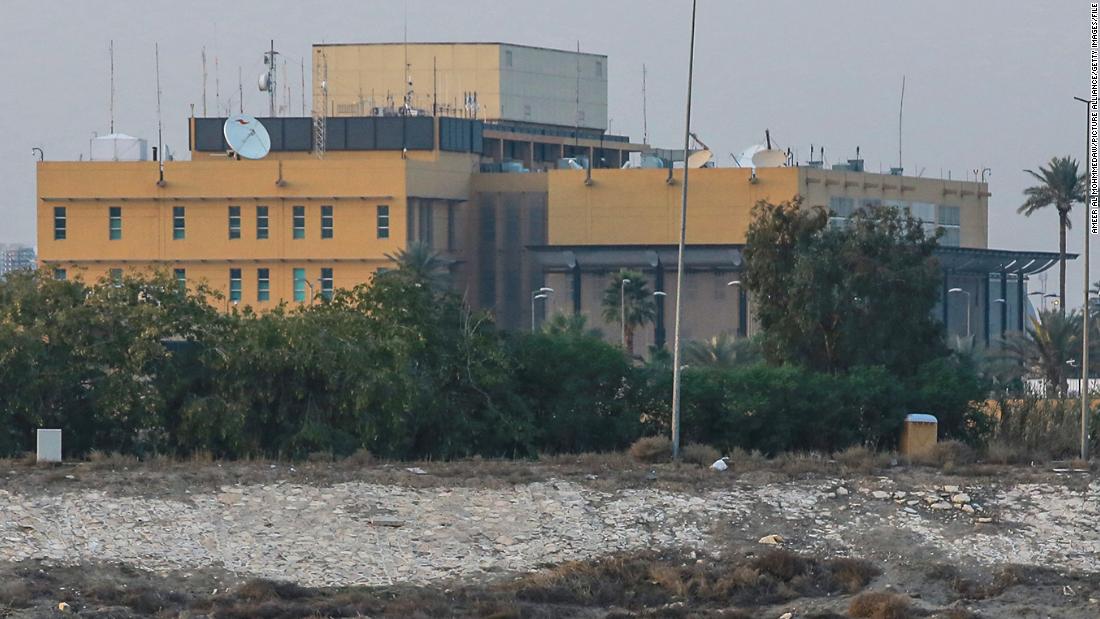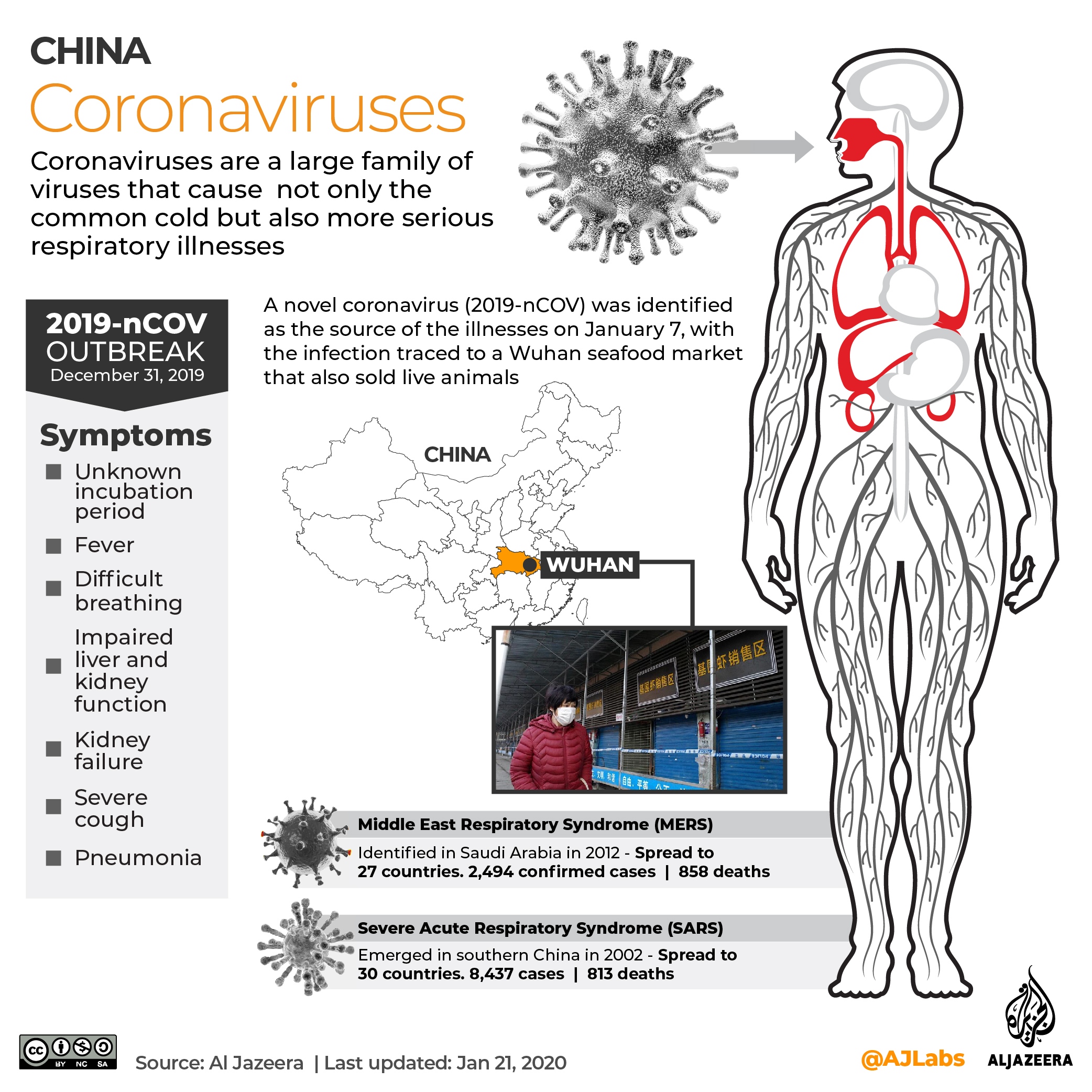Health authorities around the world are grappling with an outbreak of a new coronavirus, which originated in the Chinese city of Wuhan.
At least 81 people have died in China and almost 3,000 have been infected worldwide.
More:
Here is what you need to know:
What is a coronavirus?
Coronaviruses are a large family of viruses that cause illness ranging from the common cold to more severe diseases such as Severe Acute Respiratory Syndrome (SARS) and Middle East Respiratory Syndrome (MERS), according to the World Health Organization (WHO).
They circulate in animals and some can be transmitted between animals and humans. There are several known coronaviruses circulating in animals that have not yet infected humans.
The new coronavirus has been named novel coronavirus (2019-nCoV). It is the seventh coronavirus known to affect humans.
What are the symptoms?
Common signs of infection include fever, coughing and breathing difficulties.
In more severe cases infection can cause pneumonia, SARS, kidney failure and death.
The incubation period of the new coronavirus is thought to be between one and 14 days. The virus is contagious before symptoms appear.
How many people are affected?
Eighty-one people have died in China and 2,744 have been infected, according to official figures and state media.
Elsewhere, cases have been confirmed in Australia, France, Japan, Malaysia, Nepal, Singapore, South Korea, Taiwan, Thailand, the United States and Vietnam.
Canada has also reported one "presumptive confirmed case".
Where did it come from?
China alerted WHO to several cases of pneumonia in Wuhan on December 31.
The new coronavirus is thought to have originated in a seafood market, where wildlife was also sold illegally.
Scientists comparing the genetic sequences of the new coronavirus with those of other known coronaviruses have suggested that it likely originated in snakes.
|
|
|
What we know so far about coronavirus
|
What's happening in China now?
Efforts to contain the outbreak have caused major disruption in China, with almost 20 cities facing travel restrictions, affecting at least 56 million people. Screening stations have been set up at bus, train and plane terminals nationwide.
China has also introduced a ban in wildlife trade and extended the Lunar New Year holiday until February 2 to prevent transmission accelerating when people return from holidays.
The US, Japan and several European countries are working to evacuate their citizens from Wuhan, and the wider Hubei province in some cases.
Should I be worried? And what can I do to protect myself?
WHO has acknowledged that the virus is an emergency in China but said on January 23 that it was too early to declare it a public health emergency of international concern.
Tedros Adhanom Ghebreyesus, the agency's chief, has arrived in Beijing to meet government and health officials.
Follow local guidelines on measures to keep safe.
WHO recommends basic hand hygiene such as washing your hands with soap and water, and making sure to cover your mouth with your elbow when sneezing or coughing.
Avoid unnecessary, unprotected contact with animals and be sure to thoroughly wash your hands after contact with one.
Make sure any meat you consume is cooked thoroughly.
Let's block ads! (Why?)
https://news.google.com/__i/rss/rd/articles/CBMiV2h0dHBzOi8vd3d3LmFsamF6ZWVyYS5jb20vbmV3cy8yMDIwLzAxL2NoaW5hLWNvcm9uYXZpcnVzLTUwMC13b3Jkcy0yMDAxMjcwNjUxNTQzMzQuaHRtbNIBW2h0dHBzOi8vd3d3LmFsamF6ZWVyYS5jb20vYW1wL25ld3MvMjAyMC8wMS9jaGluYS1jb3JvbmF2aXJ1cy01MDAtd29yZHMtMjAwMTI3MDY1MTU0MzM0Lmh0bWw?oc=5
2020-01-27 10:30:00Z
52780575718901






